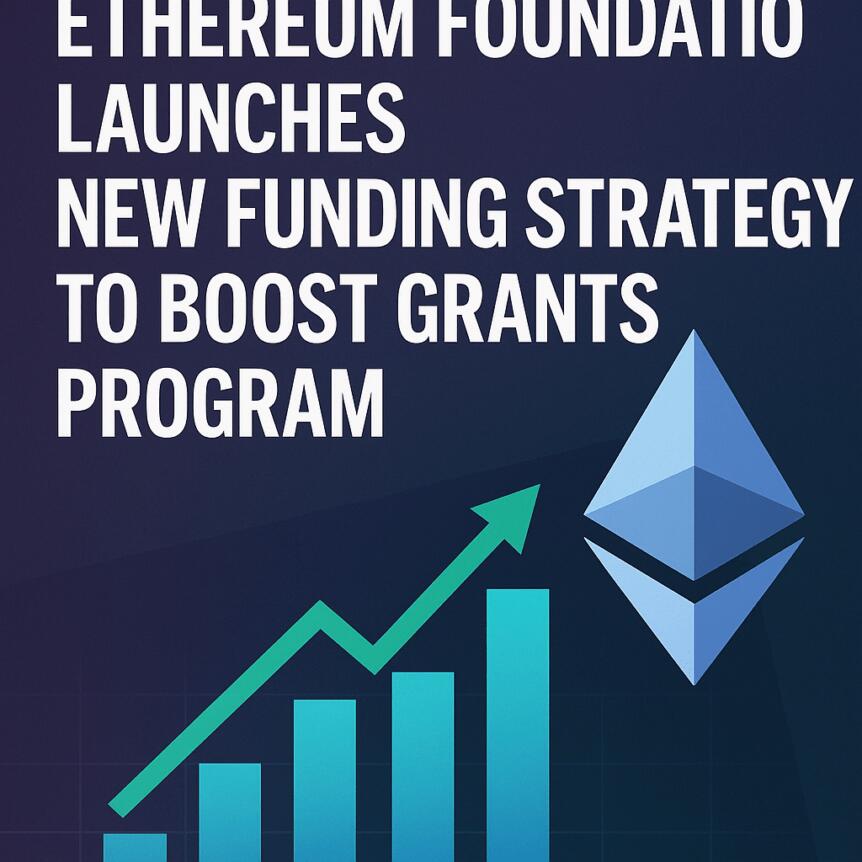Ethereum Foundation Launches New Funding Strategy to Boost Grants Program

Ethereum Foundation Revises Grants Program to Focused Funding Strategy
The Ethereum Foundation has announced a significant overhaul of its grants program, shifting from an open application process to a more targeted funding approach through its new Ecosystem Support Program. This change aims to streamline support for key projects by aligning funding with specific priorities within the rapidly evolving Ethereum ecosystem. The move underscores the Foundation’s strategic focus on developing cutting-edge cryptography, privacy, scalability, and decentralization solutions in the broader cryptocurrency and blockchain space.
- The Ethereum Foundation transitions from an open grants model to a focused Ecosystem Support Program.
- Selection will be based on predefined focus areas, with new requests for proposals (RFPs) and wishlist items.
- More than $3 million supported 105 projects in 2024 as part of ongoing ecosystem development.
- The overhaul coincides with the launch of the Fusaka upgrade, marking Ethereum’s continuous progression toward scalability and performance improvements.
- New upgrades aim to enhance transaction efficiency, security, and network performance, reinforcing Ethereum’s position in DeFi, NFTs, and blockchain innovation.
The Ethereum Foundation’s (EF) recent announcement indicates a pivotal shift in how it allocates resources to foster innovation within its blockchain ecosystem. According to a blog post released Monday, the Foundation will now distribute grants through two primary channels: a wishlist of strategic focus areas and targeted requests for proposals (RFPs). This new approach aims to better align funding with the most pressing needs of Ethereum’s development community while reducing the administrative strain caused by the previous open application process.
The older grants program, which was paused earlier this year, consumed significant Foundation resources amidst a surge of applications. By focusing its support, the Foundation intends to better pursue strategic opportunities that advance core blockchain scalability, privacy, and security.
The first round of funding requests is now live, covering areas such as cryptography, privacy protocols, security enhancements, and community growth initiatives. This targeted funding is part of Ethereum’s ongoing effort to cultivate a vibrant ecosystem of developers and innovators across DeFi, NFTs, and blockchain infrastructure.
Since its launch in 2018, the EF has supported over 100 projects, distributing approximately $3 million in 2024 alone. The new program is expected to continue this momentum while ensuring that resources are directed toward projects with high strategic impact.
This development follows Ethereum’s recent release of the Fusaka upgrade, which introduces several Ethereum Improvement Proposals (EIPs), including EIP-7594 (PeerDAS). This upgrade enhances node scalability by allowing validators to access smaller data segments from layer-2 solutions, and it supports Ethereum’s roadmap toward parallel transaction execution—crucial for increased throughput and efficiency.
The Fusaka upgrade, first deployed on testnets including Holesky and Sepolia, is scheduled for mainnet launch on December 3. It complements recent upgrades like Pectra, which enhanced staking efficiency and user wallet experiences, reaffirming Ethereum’s commitment to maintaining its leadership in decentralized finance and blockchain innovation.
As ETH and other cryptocurrencies continue to grow in relevance and complexity, the Foundation’s strategic funding approach underscores the importance of targeted support for pioneering developments in the blockchain space. These efforts aim to solidify Ethereum’s position at the forefront of cryptocurrency innovation.
This article was originally published as Ethereum Foundation Launches New Funding Strategy to Boost Grants Program on Crypto Breaking News – your trusted source for crypto news, Bitcoin news, and blockchain updates.
You May Also Like

Cleaning Up Crypto ATMs Isn’t Anti-Crypto

Incremental Learning: Comparing Methods for Catastrophic Forgetting and Model Promotion
